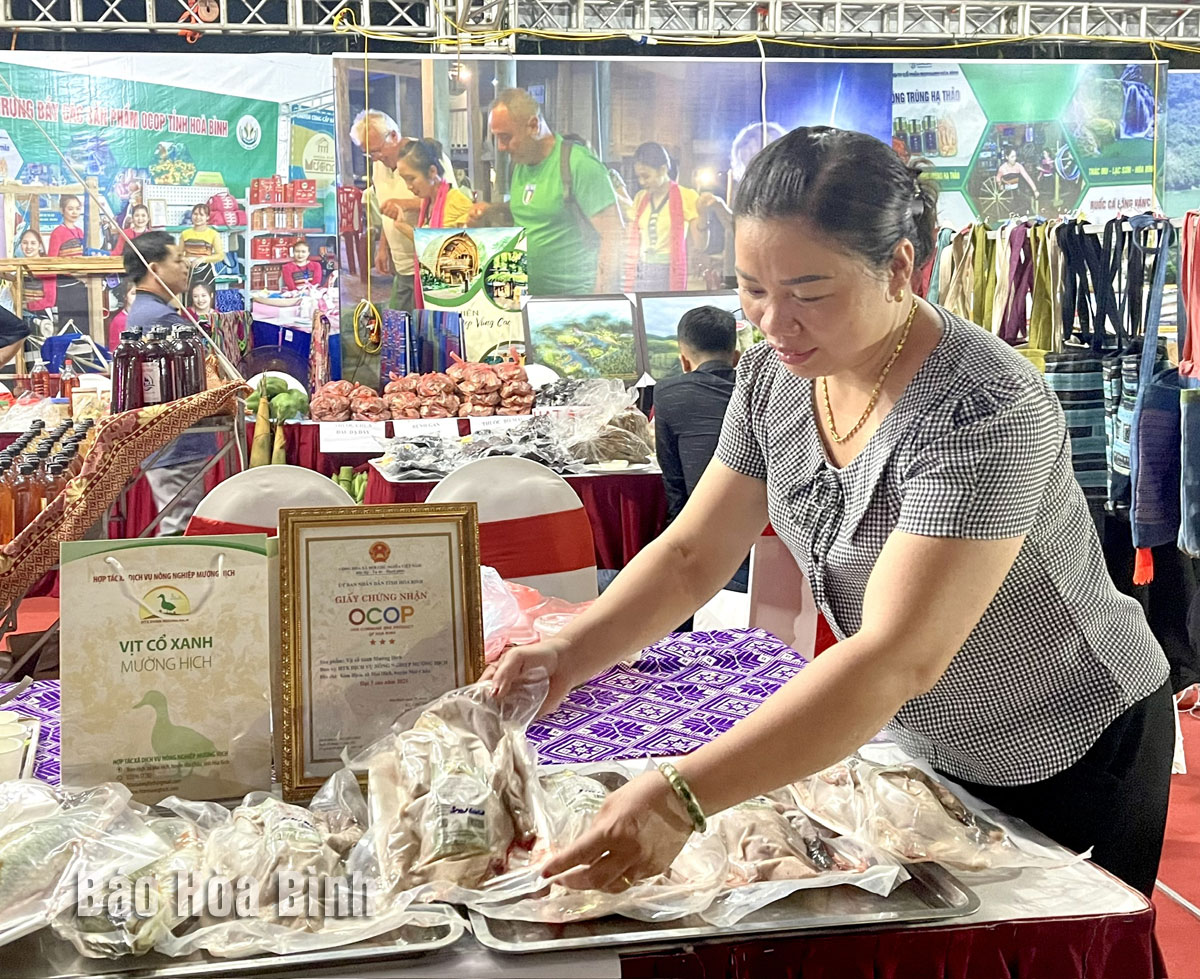
(HBO) – Anyone who has visited Muong Hich commune in Mai Chau
district cannot help but mention Muong Hich blue-necked duck - a typical
agricultural product of the locality that is highly appreciated for its quality
and safe production, along with beautiful community-based tourism villages.
Muong Hich blue-necked duck product is certified by the provincial People's Committee as a three-star OCOP product.
The Muong Hich blue-necked duck has become a familiar poultry to people in Mai Hich commune. The outstanding advantage of this duck breed is its beautiful feather. Harvest ducks will have blue colour on their head and neck. Muong Hich blue-necked duck meat has delicious quality so it is favoured in the market.
With the goal of preserving and improving the prestige, quality and reputation of Muong Hich blue-necked duck products, duck breeders in the locality agreed to establish Muong Hich agricultural service cooperative last year.
To improve quality and prevent diseases for ducks, along with building hygienic barns, breeding households make use of banana trunks and other vegetables available in the locality as food for the poultry. The cooperative also purchases an incubator to provide baby ducks for cooperative members.
Unlike imported duck breeds that have a raising time of only about 50 days, Muong Hich blue-necked ducks are raised for 3-4 months before being sold. Thanks to safe food sources and being raised in areas near fields, ponds, and streams, duck meat contains high nutritional content. It’s not difficult to cook duck, just steam or boil, ensuring its flavour while saving time for preparation.
Through the farming process, the cooperative realised that Muong Hich blue-necked ducks have the advantage of consuming less food, are less susceptible to diseases and are suitable to local conditions, said Vi Thi Phuong, Director of Muong Hich Agricultural Service Cooperative. Most importantly, blue-necked ducks gain the trust of consumers due to their good quality, ensuring stable income for farming households and cooperative members.
Last year, Muong Hich blue-necked duck product was certified by the provincial People's Committee as a three-star product under the One Commune One Product (OCOP) programme. As a result, its consumption market has been expanded and more people know about the product.
It costs about 200,000 VND (8.1 USD) per one live duck and 250,000 VND per vacuum-packed duck.
Customers mainly come from tourism, restaurants and hotels in the locality as well as from Hanoi and some neighbouring provinces.
The cooperative constantly explores ways to promote products and build brands to secure stable output. Farmers are encouraged to apply scientific and technological advances in farming to achieve high economic efficiency, gradually expanding the scale of duck farming for the cooperatives, thus, helping thecommune meet advanced new-style rural standards in the coming time.
In Lac Thuy district, communes have been succeeded in promoting their One Commune-One Product (OCOP) products while others are still struggling to position their typical farming products in market. Some communes in the district still fail to have their products met OCOP programme’s requirements, while others have seen their certifications expired.
The inspectorate agency of Hoa Binh province has issued Official Dispatch No. 1090/TTr-PCTN to provincial departments, agencies, localities, business associations, enterprises, and investors regarding measures to improve informal component indexes of the Provincial Competitiveness Index (PCI).
Hoa Binh is taking concrete steps to improve its investment environment, with a strong focus on supporting businesses, settling obstacles for strategic investors, and creating opportunities for robust development in the coming years.
Under the blazing early summer sun, the construction site of Nhuan Trach Industrial Park (IP) in Luong Son district is abuzz with activities from dawn to dusk, a testament to the determination of the investor to meet their construction targets on schedule.



